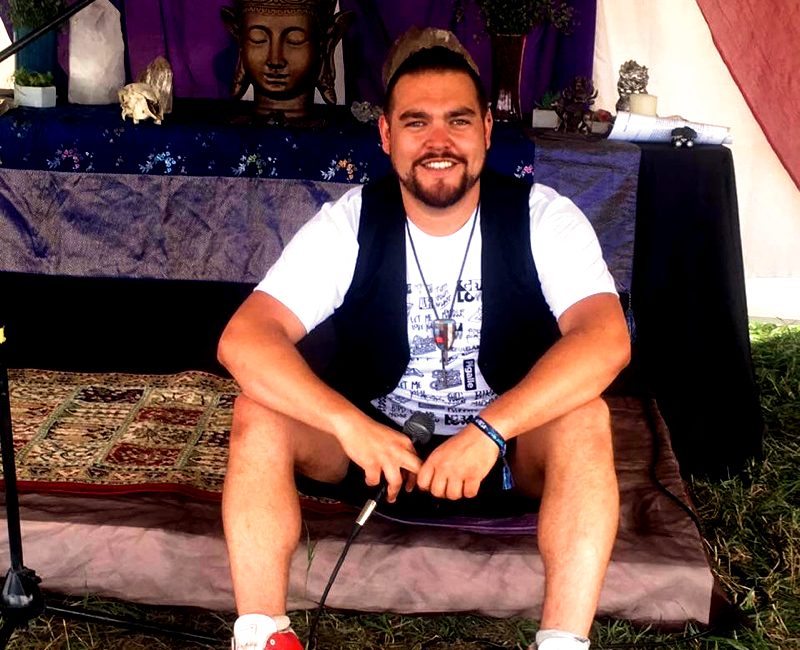Colorado has a very diverse music scene encompassing musicians and artists of varying gender, age, race, ethnicity, and physical ability. But is there a lack of diversity when it comes to the business of booking, management, promotion, events, and production?
Join us for an in-depth discussion lead by Ean Tafoya, UMS Community Engagement Director and DJ/Host for KGNU, on the need for diversity within the Colorado music business industry.
Zoom Meeting details follow:
Join Zoom Meeting
https://us02web.zoom.us/j/86429399512?pwd=aFpYNU94cG1iOWpiaC9TYUlVeXNjZz09
Meeting ID: 864 2939 9512
Password: 601453
One tap mobile
+16699006833,,86429399512#,,,,0#,,601453# US (San Jose)
+12532158782,,86429399512#,,,,0#,,601453# US (Tacoma)
Dial by your location
+1 669 900 6833 US (San Jose)
+1 253 215 8782 US (Tacoma)
+1 346 248 7799 US (Houston)
+1 929 205 6099 US (New York)
+1 301 715 8592 US (Germantown)
+1 312 626 6799 US (Chicago)
Find your local number: https://us02web.zoom.us/u/kb8cVhHxtW
==
COMBO Board Member Angela Whaley will host our next “general” meeting on ZOOM on Monday, August 24th starting at 7:00 p.m. Join us for a general discussion on Diversity in the Music Industry. The subject was brought up in an article in Denver’s 303 Magazine written by Kori Hazel. He laments that people of color and women hold very few positions in the areas of Buying and Booking not only in Denver and Colorado but in the nationwide industry.
Be sure you have your drink and snacks handy when you sit down to join us. .. or make sure to put us on “mute”. It could be VERY embarrassing for YOU. If you don’t have a camera on your computer, you can call in to join the discussion and to put in your more than 2 cents worth.
We’ll send out the connection details next week or you can RSVP to our “Event” on Facebook:
https://www.facebook.com/ColoradoMusicBusinessOrganization/
Angela Rose Whaley
Co-founder, Music Minds Matter
# # # # #
Racism is a Persistent and Critical Public Health Issue
Like so many others in Colorado, the Department of Public Health and Environment is deeply saddened and appalled by the loss of George Floyd, Breonna Taylor, Ahmaud Arbery, Rayshard Brooks, and untold others. Our hearts go out to the grieving nation, and we hope in the aftermath of these tragedies that accountability and justice will prevail.
As we mourn these recent deaths, we also acknowledge the painful reality that these incidents did not happen in isolation. They are the result of the deeply-rooted systemic and institutional racism that has dehumanized and recklessly taken the lives of people of color for generations. Occurrences of police violence are just symptoms of these structural inequities1.
Structural inequities are intertwined with our nation’s history, and they have showed up in a variety of ways. People of color have long had to endure the legacy of housing discrimination, disinvestment in their communities, more exposure to environmental toxins, and lack of economic opportunities. These are just some of the structural inequities that have led to poorer health outcomes — including a higher incidence of chronic diseases — for people of color2.
The current COVID-19 pandemic has made these structural inequities all the more obvious. Members of these communities are more likely to contract and die from the disease than their white counterparts due to a higher frequency of underlying health conditions and higher risk of exposure3.
Systemic, persistent racism is a public health issue. When the color of your skin correlates with your well-being and longevity, that is a public health injustice that must be addressed.
We at CDPHE are determined to be part of the solution. As with other issues, we must work together if we are to recover. It cannot be left solely to people of color to address these systemic issues. Those who have benefited from years of systemic inequities and who may not be directly impacted by racism must do their part as well. It starts when we recognize that racism is embedded in our systems and has negative impacts on everyone. It ends when we have the courage to enact real change.
Being silent and doing nothing is no longer acceptable. We affirm that racism is a serious public health issue, we know that the health and lives of people of color are at stake, and, most important, we are ready to take action. That is how we will make good on the promise of a healthy, equitable Colorado for all.
Sources:
1. Addressing Law Enforcement Violence as a Public Health Issue. (2018, November 13). https://www.apha.org/policies-and-advocacy/public-health-policy-statements/policy-database/2019/01/29/law-enforcement-violence?mc_cid=6f33e83709&mc_eid=9b57d939c5
2. Bailey, Z. D., et al (2017). Structural racism and health inequities in the USA: evidence and interventions. The Lancet. https://www.thelancet.com/journals/lancet/article/PIIS0140-6736(17)30569-X/fulltext
3. Kijakazi, K. COVID-19 Racial Health Disparities Highlight Why We Need to Address Structural Racism. (2020, April 10). https://www.urban.org/urban-wire/covid-19-racial-health-disparities-highlight-why-we-need-address-structural-racism
https://www.colorado.gov/pacific/cdphe
. . .
[Thank you to Alex Teitz, http://www.femmusic.com, for contributing this article.]


